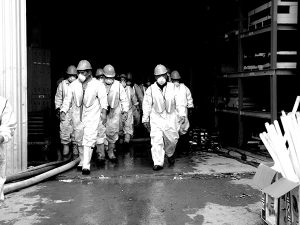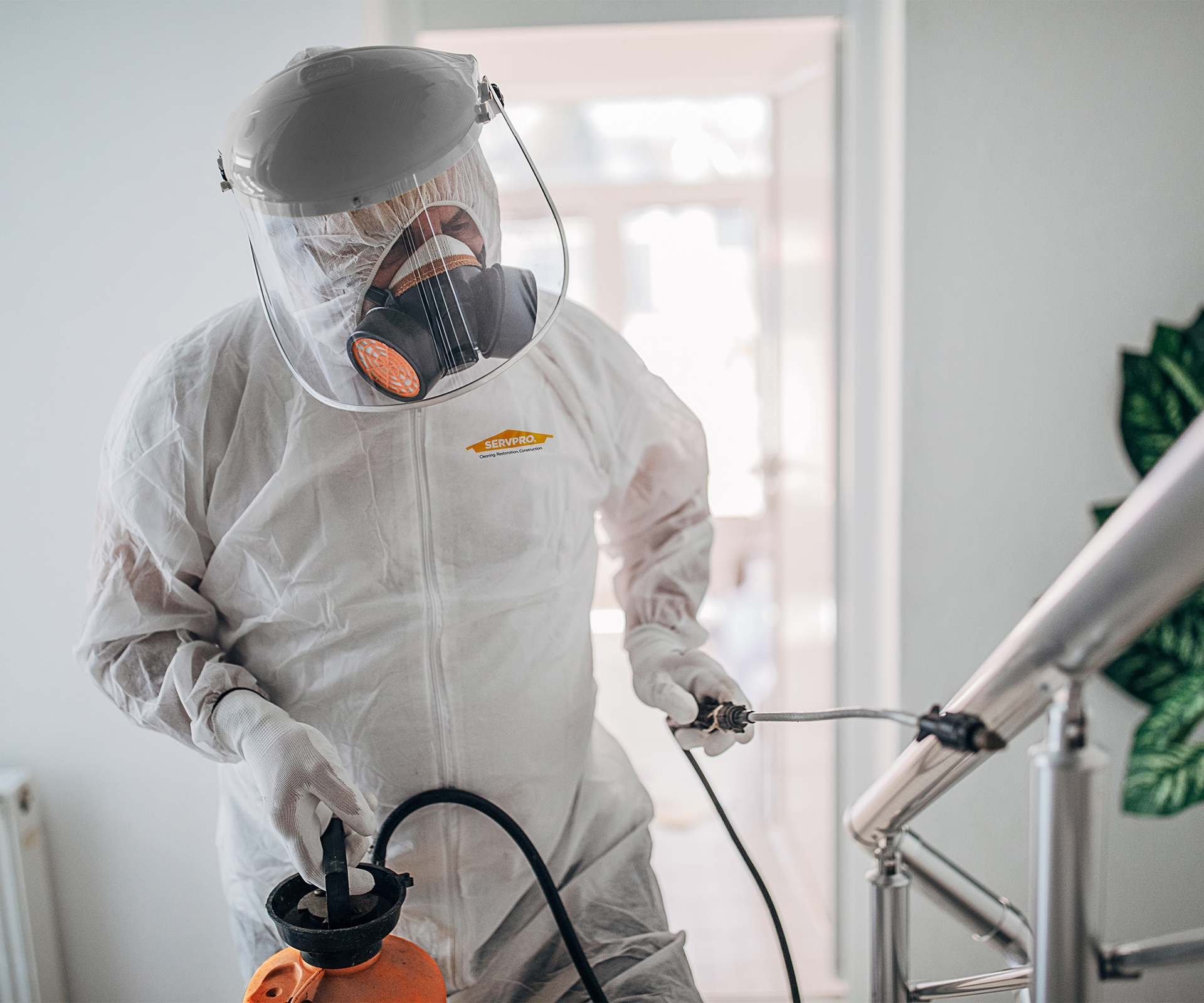Sewage Cleanup Solutions: Quick and Safe Remediation of Contaminated Areas
Expert Biohazard Cleansing and Decontamination for Blood, Bodily Fluids, and Hazardous Products
The prospective health risks linked with exposure to biohazards underscore the important demand for thorough handling and extensive cleanup. As we browse the detailed landscape of biohazard cleaning, comprehending the nuances of policies, compliance, and the specific tools at play ends up being essential in making certain a safe and detailed decontamination process.
Health And Wellness Risks of Biohazard Direct Exposure
Direct exposure to biohazards postures significant health risks that can cause severe effects for neighborhoods and people alike. Biohazards incorporate a variety of biological substances, including blood, physical liquids, mold, germs, infections, and various other potentially infectious products. When people enter contact with these biohazards, whether through accidents, incorrect handling, or ecological direct exposure, they deal with the risk of contracting significant ailments or conditions.
One of the main health dangers associated with biohazard exposure is the transmission of transmittable conditions. Bloodborne virus such as HIV, hepatitis B and C, and various microorganisms can be existing in biohazardous products, posing a straight threat to human wellness. Breathing in air-borne biohazards like mold and mildew spores or coming right into contact with polluted surfaces can additionally lead to breathing issues, allergies, and other adverse health results.
Furthermore, biohazard exposure can have long-term wellness effects, with some conditions showing up years after the first call (Blood Cleanup). Therefore, it is crucial to prioritize appropriate biohazard cleansing and purification to mitigate these wellness threats and make sure the safety of areas and people

Specialized Educating for Biohazard Cleanup
When it comes to taking care of biohazard clean-up effectively and securely, specialized training plays a basic role in making sure proper purification treatments are complied with. Biohazard cleanup requires certain expertise and skills to effectively alleviate dangers connected with bloodborne microorganisms, bodily liquids, and hazardous materials. Professionals learnt biohazard clean-up undergo strenuous direction on how to safely deal with, eliminate, and dispose of biohazardous materials to avoid contamination and exposure.
Specialized training for biohazard cleaning covers a series of essential topics, including proper individual protective tools (PPE) use, bloodborne pathogen understanding, purification techniques, and hazardous waste disposal protocols. Individuals learnt biohazard cleaning are outfitted with the essential competence to assess contamination levels, recognize potential hazards, and apply ideal cleanup procedures in conformity with governing standards.
Constant training and education and learning are extremely important in the field of biohazard cleanup to remain upgraded on the current decontamination innovations, safety and security protocols, and regulations. By spending in specialized training, biohazard clean-up specialists can properly react to emergency clean-up circumstances and secure both public wellness and the atmosphere.
Importance of Appropriate Purification Strategies
Making use of proper purification methods is crucial in biohazard cleaning to effectively get rid of dangerous materials and reduce wellness threats. Reliable purification not just makes sure the elimination of visible traces of blood, bodily fluids, and various other biohazards yet additionally targets invisible microorganisms that may present severe health and wellness dangers otherwise correctly gotten rid of. By following rigid decontamination procedures, educated professionals can significantly reduce the threat of direct exposure to unsafe microbes, infections, and germs that could lead to diseases or infections.
Correct purification methods involve making use of customized tools and disinfectants that are specifically designed to counteract biohazards successfully. Complete cleaning and disinfection of infected locations are necessary to avoid the spread of virus and ensure a secure atmosphere for passengers. Furthermore, the proper disposal of biohazardous waste complying with decontamination treatments is crucial in stopping contamination of various other surfaces or individuals.

Equipment and Devices for Safe Cleanup
The appropriate tools and tools play a crucial role in ensuring the efficient and risk-free cleanup of biohazardous products. When managing blood, bodily liquids, or dangerous materials, biohazard cleansing specialists rely upon specialized gear to lessen direct exposure risks and mold remediation extensively sanitize the afflicted location. Individual protective devices (PPE) such as handwear covers, safety glasses, coveralls, and masks are important to shield versus straight call with possibly contagious products. Furthermore, biohazard cleansing kits having anti-bacterials, absorbent products, and biohazard bags are used to securely contain and dispose of polluted products. Blood Cleanup.
Advanced cleaning devices like hospital-grade disinfectants, HEPA-filtered vacuums, and misting equipments are used to sterilize surface areas and eliminate biohazards efficiently. Specialized equipment such as sharps containers and biohazard waste disposal containers are made use of to securely take care of sharp things and biohazardous waste materials. By utilizing the appropriate equipment and tools, biohazard cleansing experts can guarantee a complete clean-up process that prioritizes safety and security and reduces wellness threats for both employees and passengers of the affected room.
Regulations and Conformity in Biohazard Cleaning
Correct adherence to laws and compliance standards is extremely important in biohazard cleansing to guarantee the safety and security of both workers and the environment. Federal government companies such as OSHA (Occupational Safety and Health And Wellness Management) and the EPA (Environmental Security Firm) have developed specific standards for biohazard cleanup treatments to decrease wellness threats and ecological contamination. These laws cover a series of facets consisting of the handling, transport, and disposal of biohazardous products, in addition to the needed training and protective devices required for personnel associated with the cleaning procedure.
Biohazard cleaning companies must stay current with these laws to guarantee that their procedures meet the needed safety and security requirements. Failing to adhere to these guidelines can result in serious effects, including fines, lawsuit, and endangering the wellness of people and the atmosphere. By following rigid laws and conformity steps, biohazard cleaning firms can efficiently mitigate risks and make sure a risk-free and detailed cleanup procedure for all celebrations included.
Verdict
To conclude, biohazard cleansing and purification call for customized training, correct techniques, and adherence to regulations. Exposure to blood, bodily liquids, and unsafe products presents significant wellness risks, making it vital to use the appropriate equipment and devices for safe clean-up. By following strict protocols and guidelines, specialists can properly alleviate the risks associated with biohazard exposure and make certain the safety and security of both themselves and others.
As we navigate the elaborate landscape of biohazard cleanup, recognizing the subtleties of policies, compliance, and the customized devices at play becomes vital in guaranteeing a complete and risk-free purification procedure. (Blood Cleanup)
When it comes to dealing with biohazard cleanup successfully and safely, specialized training plays a fundamental role in ensuring correct decontamination treatments are complied with.Making use of appropriate decontamination methods is essential in biohazard cleaning to efficiently minimize and get rid of hazardous materials wellness dangers. In addition, biohazard cleaning sets consisting of disinfectants, absorptive products, and biohazard bags are used to securely get rid of and contain of polluted things.
Government companies such as OSHA (Occupational Safety And Security and Health Administration) and the EPA (Environmental Security Firm) have established details guidelines for biohazard clean-up procedures to decrease wellness risks and environmental contamination.